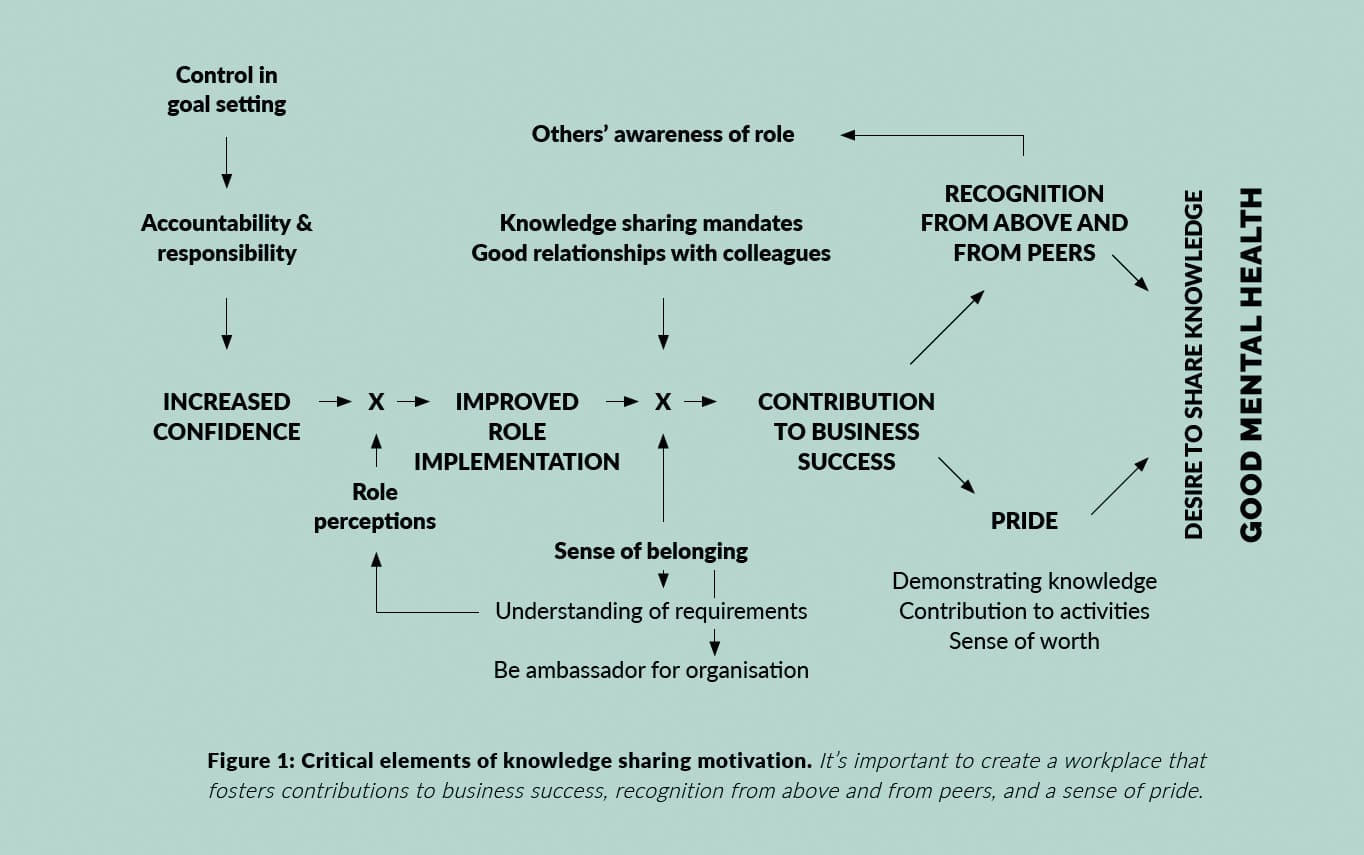“An investment in knowledge always pays the best interest.”
Benjamin Franklin (1706 – 1790)
This statement is relevant in bidding for at least two reasons:
- We rely on knowledge sharing to realise all the dimensions of a proposal that convince procurement teams to say ‘yes’
- • Knowledge is power but only if the knowledge is shared for the benefit of all team members in the bid lifecycle, including to foster a sense of community in the workplace.
KNOWLEDGE SHARING AND MENTAL HEALTH: MUTUALLY REINFORCING DRIVERS
For good mental health, people usually need to feel part of a community. One sign of community perception is our desire to share knowledge. A sense of community inspires us to share what we know, and sharing what we know helps to cement our role in the community.
What is it about feeling part of a community that motivates us to share knowledge?
TAKING A LEAD FROM PRACTICAL RESEARCH IN THE WORKPLACE
In a previous business development role, I researched motivation for knowledge sharing in a major UK construction company, using semi-structured interviews of junior, middle and senior managers – knowledge workers – including people working in bidding. My study was inspired by the principles of general workplace motivation. I banded knowledge sharing motivators according to the extent of their evidence as motivators: limited, moderate, medium, high and extensive.
MOTIVATION BY INTRINSIC REWARDS AND A SENSE OF BELONGING
Nearly all the factors showing high and extensive evidence were intrinsic motivators, categorised under ‘belonging’, ‘esteem’ and ‘self-actualisation’ (fulfilment of talents and potential) factors. Intrinsic reward is also a key influencer of mental health, so there is a compound benefit to be gained by creating a work environment that stimulates intrinsic rewards.
Motivation by recognition and exercising competence: Respondents identified with others’ awareness of their roles, reflecting recognition of position, status and contribution to the business. They expressed accountability and responsibility as motivators for knowledge sharing. These factors relate to demonstrating competence, an important requirement for knowledge workers.
The Government’s mental health first aid (MHFA) course also notes people’s need to feel valued and recognised at work. One of my takeaways is that we must set up our approach to bidding to ensure team members’ talents and competences are recognised and encouraged. Doing so will promote good mental health and will derive greatest benefits for bids from explicit and tacit knowledge.
MOTIVATION BY PERSONAL PERFORMANCE
I found individuals’ performance to be a key factor affecting job satisfaction, and that performance sustained motivated effort – the better we perform, the more we want to keep doing so.
The strongest motivators were personal performance and others’ recognition of performance. In bids, we must recognise the importance of making useful contributions for the success of the whole bid team, and for enabling team members to exercise their competences to create a sense of pride and worth.
A CONCEPTUAL MODEL

Figure 1 is the conceptual model that I developed. It’s important to create a work environment that promotes the factors shown in bold, also recognised by the MHFA training as some of the factors important for good mental health.
WAS FRANKLIN RIGHT?
An investment in knowledge certainly does pay good interest, and we’ve recognised the importance since 1790 of moving workplaces forward to make them conducive to sharing knowledge and promoting good mental health. Franklin recognised that the wiser we are, the better decisions we’ll make and the more things at which we’ll be successful. We must make sure that all team members play their part in creating the best work environment. If we apply the motivators linked with intrinsic rewards, we’ll be off to a good start.
This article was written by Holger Garden.
Holger is a bid manager and writer, and a personal / team performance coach. He spends most of his time supporting construction clients bidding for civil infrastructure and building projects, but his transferable skills have led to his work in the medical, charity and security arenas also. He works with businesses of all sizes to help them win more work.

